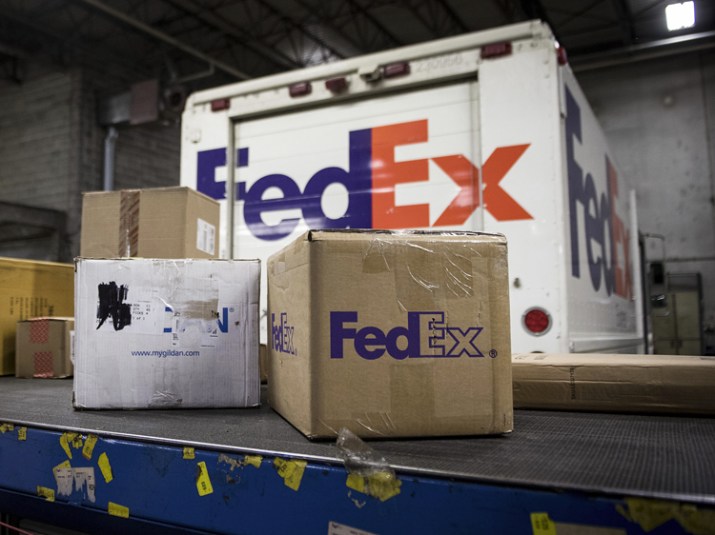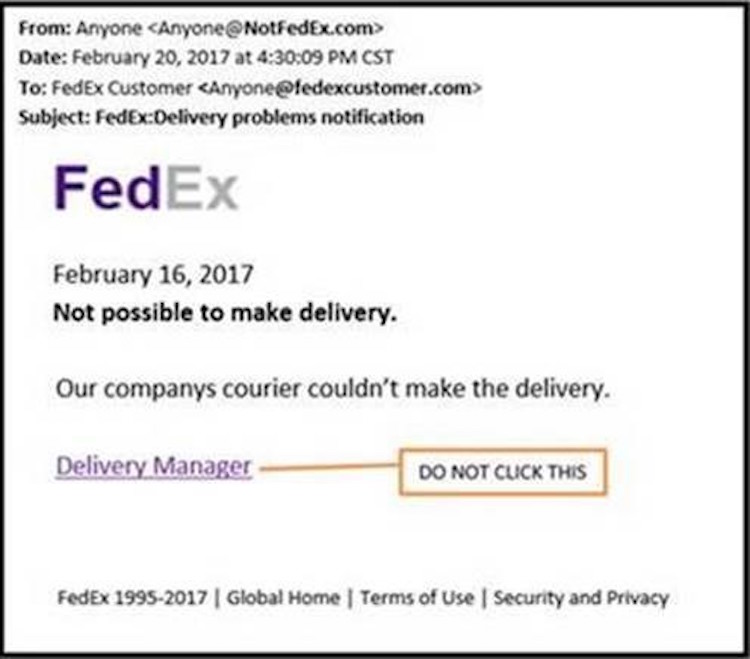FedEx Warns Customers to Watch Out for Holiday Email Scam

‘Tis the season for sending gifts to loved ones, so unfortunately, ’tis also the season for holiday delivery scams. Now, FedEx is warning its customers about a particularly un-festive fraudulent email scam affecting many of its customers during the Christmas season.
Since lots of people are in a rush to ship packages in time for the holiday, it’s prime time for scam artists to take advantage of the massive amounts of deliveries and the stress that holiday shoppers experience while waiting for their gifts to arrive safely. Now, the latest phony email scam involves a subject line that reads “FedEX: Delivery Problems Notification.”
Inside, the email looks scarily realistic, even including a FedEx logo. The message within instructs customers to click links that appear to contain an explanation as to why FedEx supposedly couldn’t deliver their packages. The company is urging customers not to open any of these emails and especially not to click on any links inside them.
“These emails can contain links which, when clicked, will connect the user to a site which then infects their computer,” FedEx explained on their website. “These links can point to any number of infected websites all over the globe. Some of these sites may look like fedex.com, while others do not.”
FedEx instructs customers that if they receive an email like the one below, they should delete it immediately or forward it to abuse@fedex.com.

(Photo Credit: FedEx)
The company added, “FedEx does not send unsolicited emails to customers requesting information regarding packages, invoices, account numbers, passwords or personal information.”
FedEx also released a list of common warning signs of a fraudulent email that customers could use to spot a scam right in its tracks.
How to Recognize a FedEx Scam
We know the holidays are a hectic time, but please remember to keep your eyes peeled for these red flags on your inbox. The last thing you want is more stress — especially from a scam.
Unexpected requests for money in return for delivery of a package, often with a sense of urgency. Requests for personal and/or financial information.
Links to misspelled or slightly altered website addresses (fedx.com, fed-ex.com, etc.) Spelling and grammatical errors or excessive use of capitalization and exclamation points.
Claims that you have won a large sum of money in a lottery or settlement.
Certificate errors or lack of Secure Sockets Layer (SSL) for sensitive activities.
h/t WTOL.com
More from FIRST
Don’t Fall for the Phony IRS Scam That Happens During the Holidays
711 Million Email Addresses Have Been Stolen — This Is How to Know If You’re Affected
How to Avoid the Online Hotel Booking Scam That’s Been Stealing People’s Money for Years













